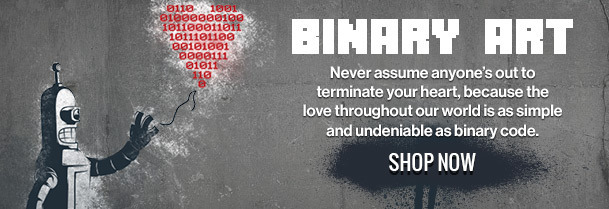5 Statistics That Are Eerily Good Judges of Character

According to science fiction, future machines will be able to do just about anything except love and, ironically, the robot dance. No advanced machine in pop culture seems capable of grasping the majestic complexity of the human mind ... which is probably very embarrassing for them because real, modern-day computers can do exactly that. Not only do we already have computer programs that can peer into your very soul, a lot of them are being used on you right now.
An Algorithm Can Find Your Physical Location From Your Friends' Tweets

Isn't it nice taking a break and just falling off the grid? It sure was. Notice the past tense. Now you don't have to so much as touch the Internet, and your location can still be tracked, thanks to a program that can determine where you are at any given moment based on your friends' tweets.

In hindsight, Rhonda should have blocked @RhondasStalker.
A group at the University of Rochester built an algorithm that uses tweets to automatically identify the social relationships of active Twitter users based on their tweets' content and geo-tagged location. After identifying who your friends are, the algorithm then uses the data from their online activity to pinpoint your exact location, even if you yourself are not tweeting anything about the status of your current burritos, or glib observations about TV shows.
The idea behind Flap ("Friendship + Location Analysis and Prediction") is quite simple. Let's say that the algorithm detected that Mark, Joe, and Bob are best friends. If Mark tweets "partying with my two best buds," and Joe tweets "just found a rat in my pancake LOL!" the system can venture a guess that Bob, who hasn't tweeted anything, is probably getting regrettable drunk food with Mark and Joe at Denny's at 2 in the morning.

Later, it traces Bob next to a pile of dumpster-side cholestervom.
The actual algorithm is naturally much more complex and has been designed for noble goals, like predicting the spread of pandemics and such. And certainly no technology developed for noble ends has ever been misused -- just ask Nobel himself.
Your Facebook Likes Reveal Nearly Everything About You

On the one hand, we all want to be socially active and connected to the world, but on the other hand, social interaction is hard, and you usually have to wear some form of oppressive pants. That's why Facebook "likes" are so great. With just one click, you can proudly express support for any person or idea you wish, all from the privacy of your own home. Well ... maybe "privacy" isn't the right word here because a joint Cambridge-Microsoft team has actually built a program that can use your Facebook "likes" to accurately extrapolate all sorts of personal information about you, including your IQ, sexual orientation, race, and personality traits.

Even when you don't just type all that in your public "About me" box.
There's the obvious stuff: If a guy "likes" Wicked, the "No H8 Campaign," and "Mac Cosmetics," Facebook will think he's gay, and they're usually right. But many of the correlations were far less intuitive. For example, while fans of Stephen Colbert will probably smugly nod to themselves upon learning that "liking" the show is correlated with a high IQ, so is "liking" thunderstorms and curly fries. Only idiots like Jojos and fog, apparently.
Likewise, your guess is as good as ours as to why "liking" something like "being confused after waking up from naps" is correlated with male heterosexuality, while "liking" "I love being a mom" means a low IQ. Don't even get us started on "being confused after waking up a mom."

"I'm about to lower someone's IQ points."
The program can tell you a person's political affiliation, orientation, or race with an 85 to 95 percent success rate, all from a tiny sliver of information on Facebook. Fortunately, Facebook's strong history of respecting privacy and ethical research standards proves that they would never exploit this.
Programs That Can Tell Everything About You From a Small Writing Sample

"Haha!" you might say at this point. "I don't use social media, and have no friends! My plan finally pays off!" That doesn't matter: If you've ever written anything on the Internet, we have some bad news for you.
IBM's Watson supercomputer, the world's top Jeopardy player and five-star fusion chef, is slowly figuring out everything about you, just from your writing sample. Here's a fun demo that only needs a thousand words to confidently assess your intelligence, willingness to challenge authority, trust of others, susceptibility to stress, and need to feel loved. Jesus, we've written 12 times that amount just on the MacGyver episode where he turns a coffin into a Jet Ski.
What, you thought we made that up?
Oh, and the thousand words don't even need to be connected in any way, as Watson can reportedly get a pretty good handle on you from tweets alone.
The idea of predicting one's personality using Twitter is nothing new, but another study, using the same science as Watson, went darker and edgier by using Twitter to successfully identify traits that people try to hide about themselves online. Stuff like sociopathic tendencies, manipulative natures, and inherent narcissism.

@RhondasStalker, for example, is rather passionate.
Which begs the question: How did it then narrow the search results down from "all of Twitter"?
The Navy Instantly Knows If You're Just All Talk

The reason we vastly prefer our Power Rangers bobbleheads to real people is that you just can't trust the latter. Sometimes people say one thing, and then do a completely other thing, which is basically cheating at language, if you ask us. Your girlfriend might say she's fine when she's really not, but when the Pink Ranger nods, you know she means it. Fortunately, the U.S. Naval Postgraduate School's CORE Lab understands our pain, which is why they've been working on software that analyzes social media to determine the true motivations of individuals.
It's their most subversive invasion of culture since 1978.
In 2013, Navy researchers used in-house software to analyze open source information from Facebook, Twitter, and YouTube to not only map out the relationships between Syrian insurgent groups in detail, but also determine whether their leadership would actually "align with U.S. policy objectives" as they promised they would. The results showed that only 27 out of 42 anti-Assad groups would actually be on our side, and of those 27, only four had shown any sort of competence on the battlefield.
How did they determine that? To put it in grossly oversimplified terms, if analysis showed that the leader of a Syrian rebel group "liked" a Facebook post about how freedom was overrated, then gave a thumbs-up to a YouTube video about how bald eagles were stupid -- well, he probably wouldn't have made a good ally to America.

"I will eat you, then shit you on your just washed car, pinko."
It sounds insultingly simple but an unnamed officer who looked at the findings of the software said that "this would have taken an entire intelligence section numerous months to develop." And the program's use isn't limited to foreign powers. It's in use right now in the U.S.: Members of CORE Labs have been helping local police use technology like this to identify gang members in Massachusetts based on their social media activity. So if you're planning a drive-by in Beantown soon, maybe lay off the RTs for a bit.
Consumer Databases Tell Politicians Which Candidate You're Most Likely to Vote for

So, the 2016 election is slowly approaching. Which party do you think you'll vote for? We hope House Party is running. We love that movie and have full confidence in the Kid and Play ticket. Too bad we won't actually get to make that decision. Nor will you: The right candidate will be chosen for all of us based on our Web activity, then slowly Inception-ed into our minds thanks to "microtargeting."

Just play this when you're done with this entry.
First, the Democratic and Republican parties will buy information on you from data brokers like Acxiom, which has the consumer information (addresses, shopping history, etc.) of over 190 million people. Then politicians will cross-analyze it with other data sources, and use that to craft a political message that will appeal to you individually.
For example, they might see that you have a firearms license, drive everywhere, and don't donate to charity. Next election, you'll probably get a message from the GOP implying that a Democratic candidate will take your guns away and melt them into free bicycles for the homeless.

Ah yes, the old "Beretta beggar pedaller" scheme.
Or they might just sic your own friends on you instead. In 2012, Obama's campaign practiced something called "targeted sharing" where people could log into their system and upload their Facebook friend list to it. Then, based on the campaign's own extensive records, the service would tell the user which of their "friends" could use a nudge towards voter registration.
But it's still totally safe to "like" Cracked. We're nowhere near technically competent (or morally responsible) enough to sell you out to Big Democracy.
Gregory Maus thinks a lot about the implications of developing technologies and sometimes he's asked to share his thoughts with people whose titles barely fit on business cards. Some of his discussions with researchers and other thought leaders on the subject are available here, and more of them will be in his upcoming book.
For more things you didn't know you could tell about yourself, check out 5 Physical Details That Reveal Highly Personal Information and 6 Intimate Details You Can Tell Just By Looking At Someone.
Are you on reddit? Check it: We are too! Click on over to our best of Cracked subreddit.
